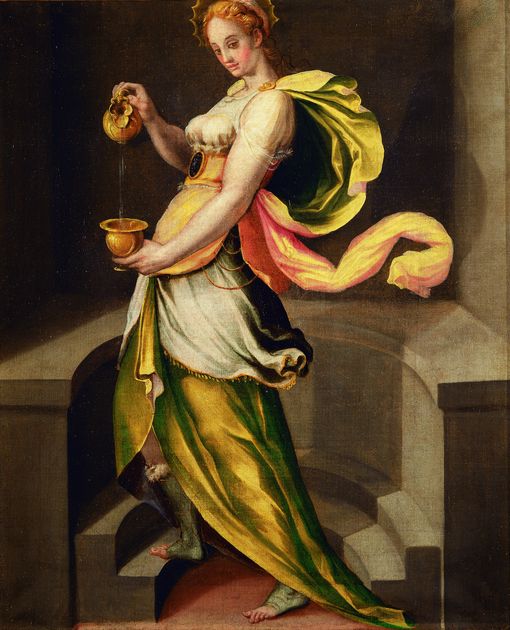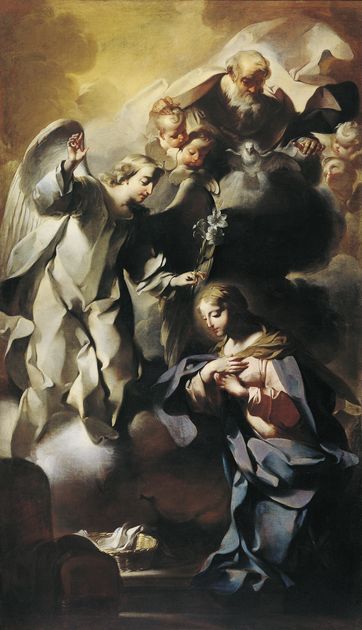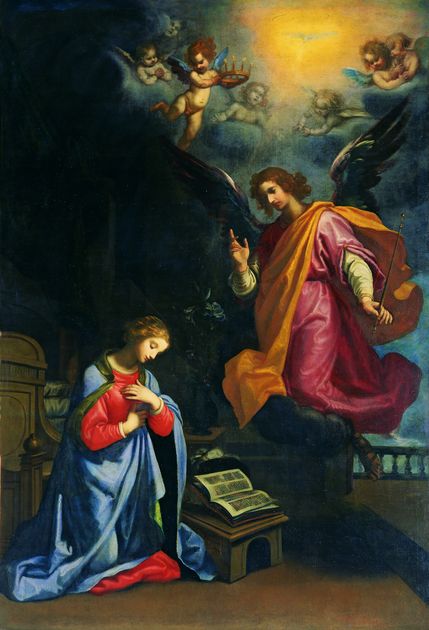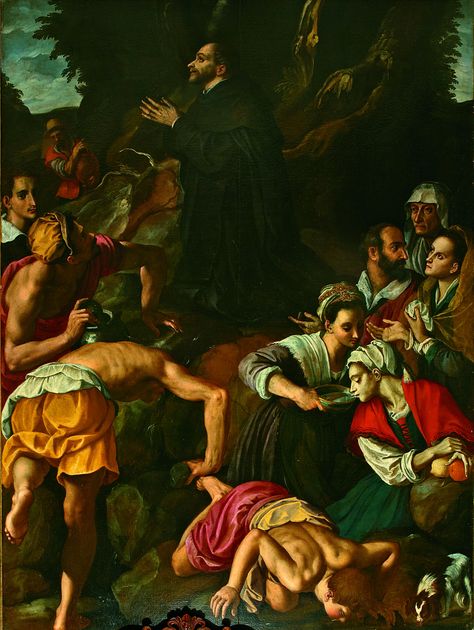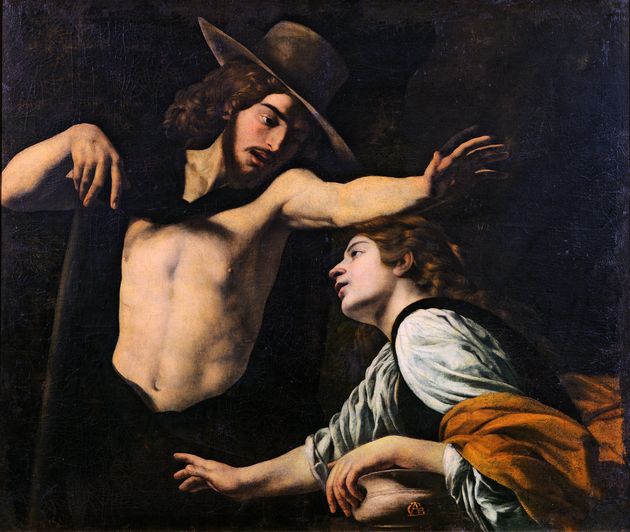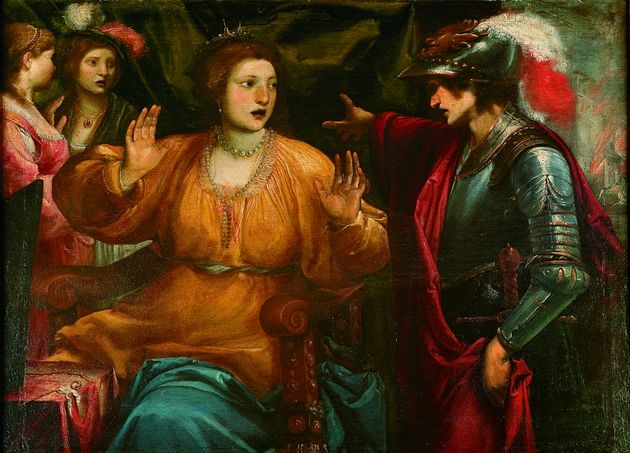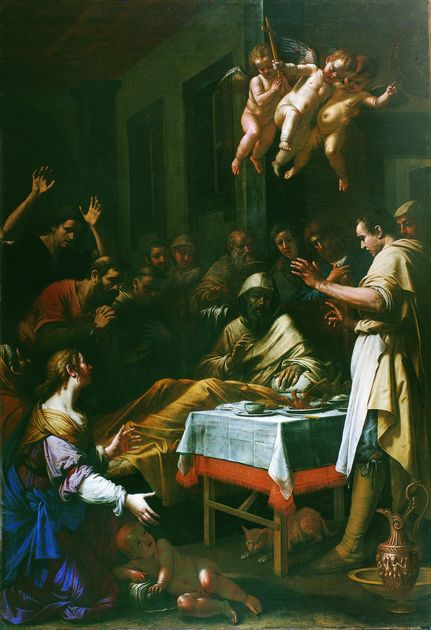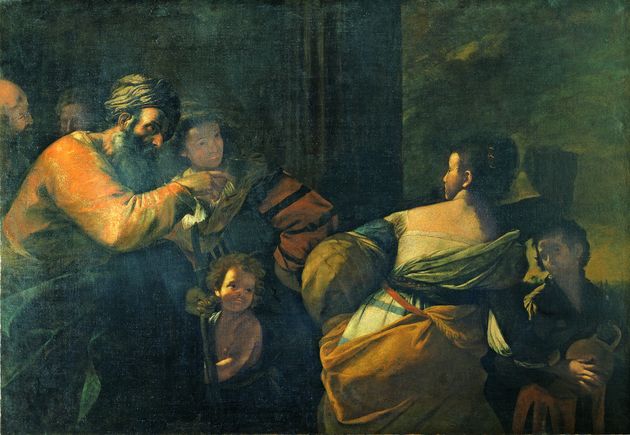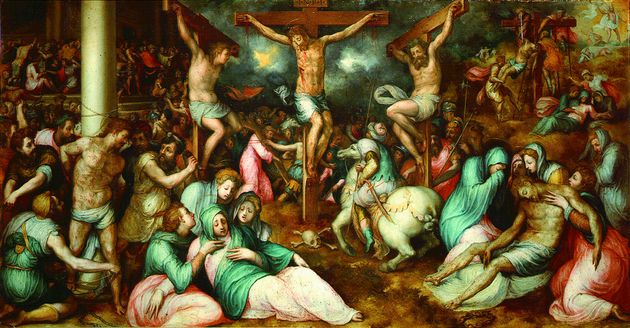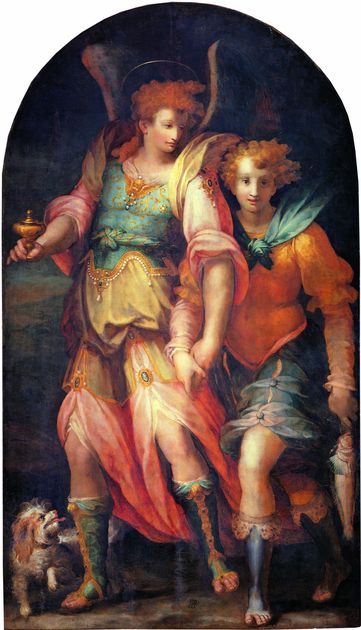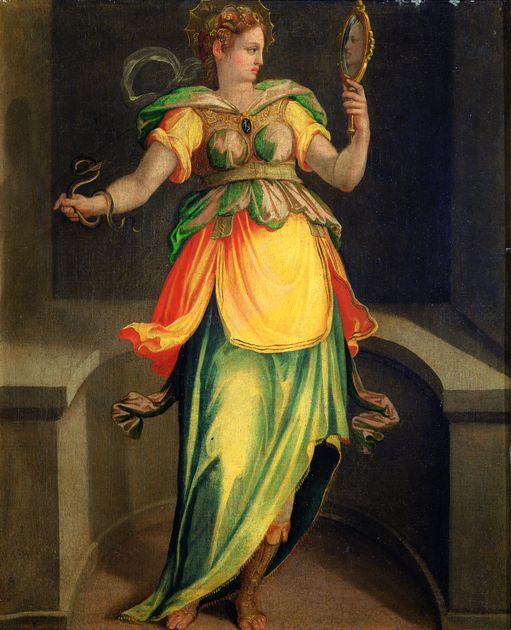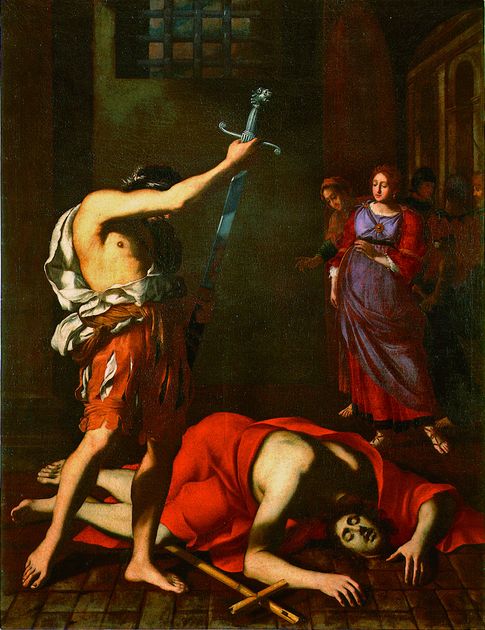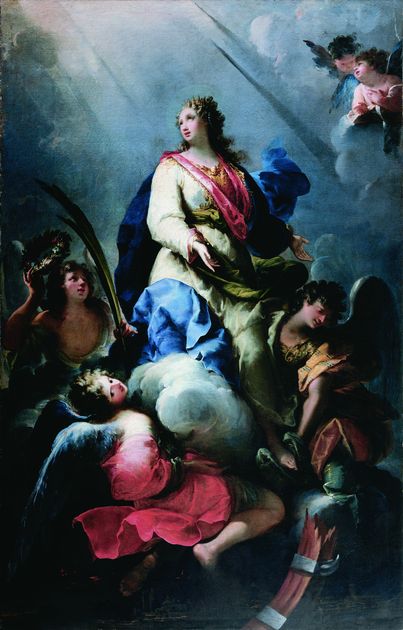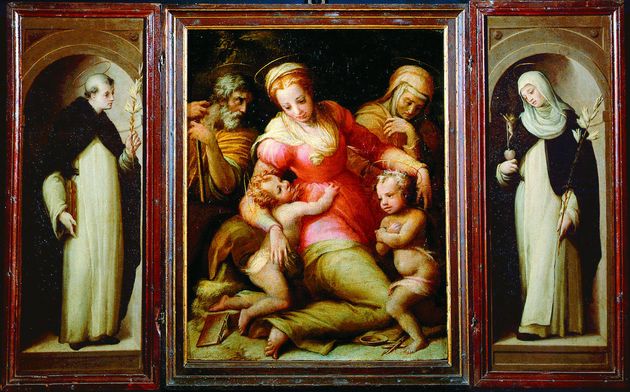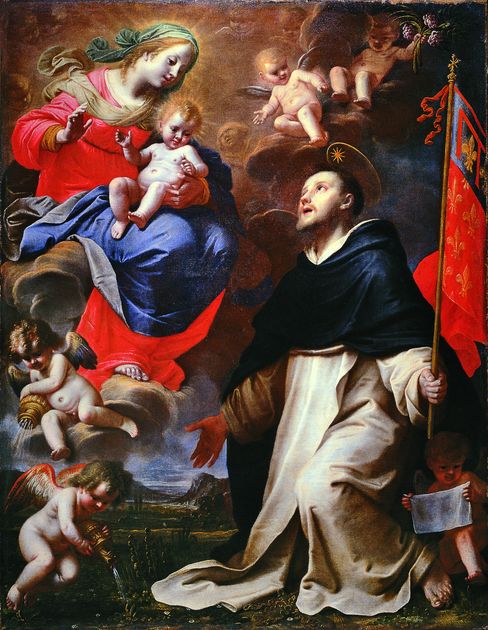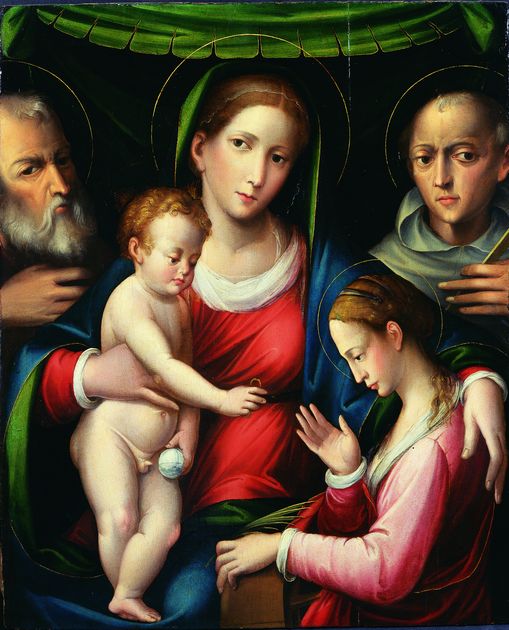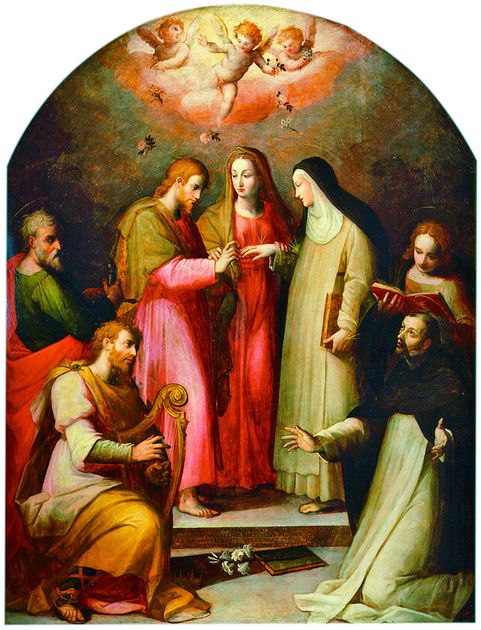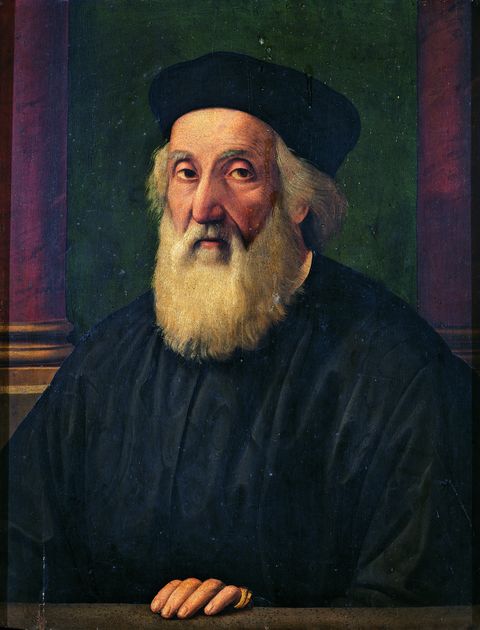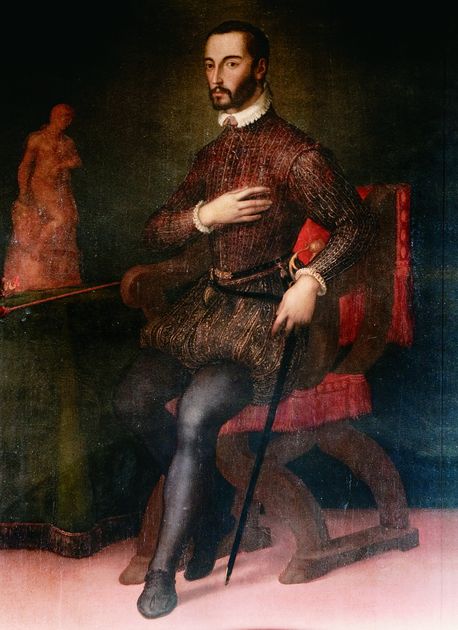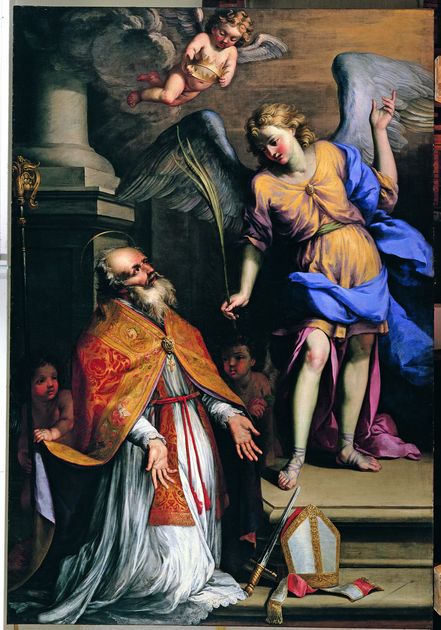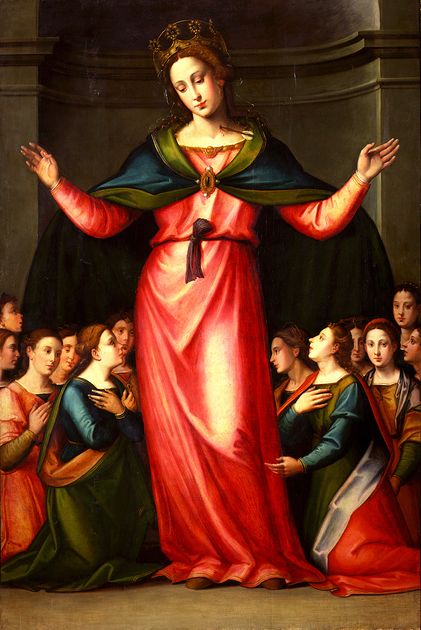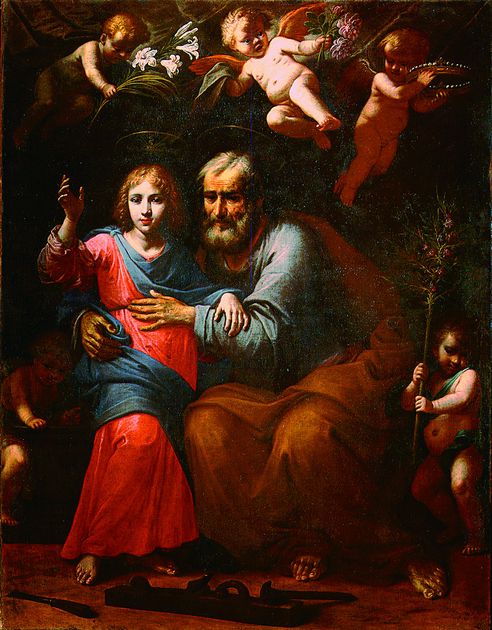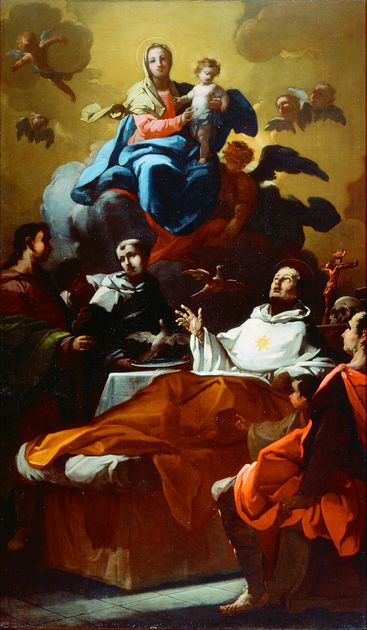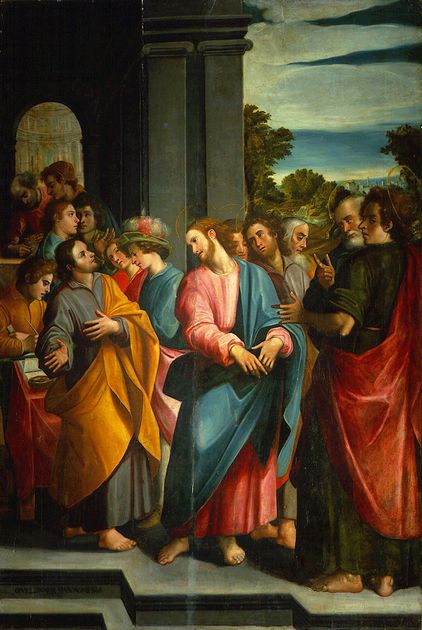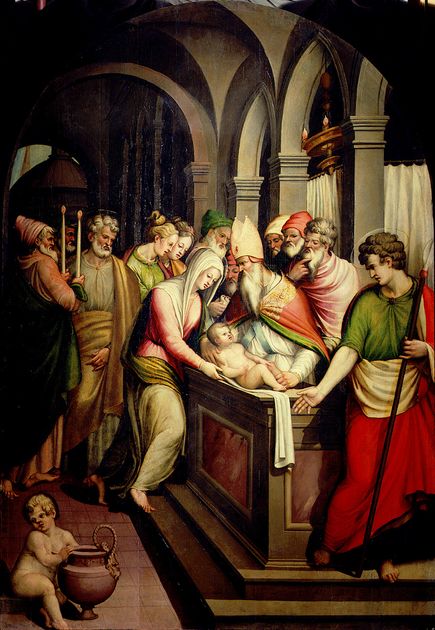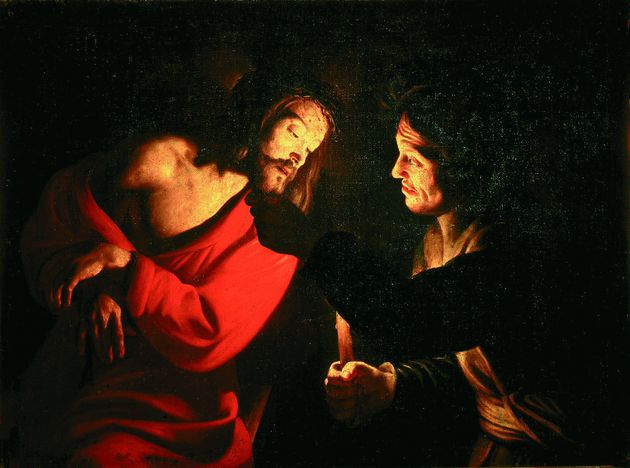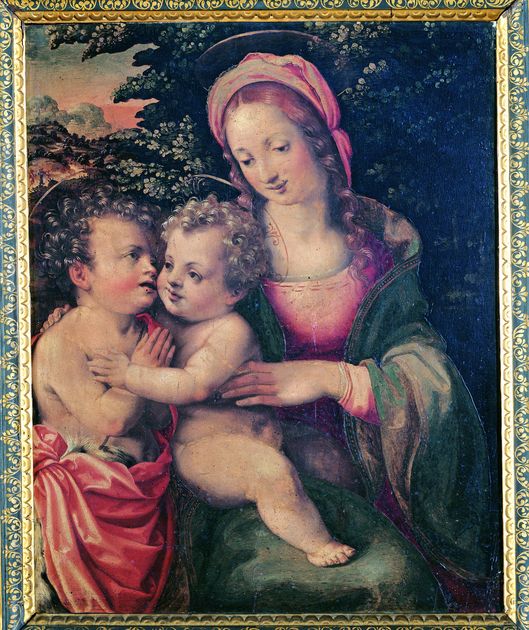Butteri collaborated for a long time with Alessandro Allori, who had like him been the pupil of Bronzino, and he reproposed Allori’s style, adding (as can also be seen in the Prato Virtues) a greater stylisation of the forms and a decisiveness in the draughtsmanship, which he had perhaps developed in his designs for the Medici tapestries. He worked for the grand ducal court, often painting furnishings and decorations for weddings and other celebrations, and it is likely that also the three Prato canvases from the hospital Spedale della Misericordia (and also a fine Medici coat-of-arms by the same artist) were ceremonial decorations. The three figures, well identified by the age-old traditional attributes, resemble engravings in their graphic, refined elegance. The uniform niche-like background underlines the statuesque poses which are rendered dynamic by the sinuous, marked lines and the cold, iridescent colours that seem to be soaked in a strong light. Various allusions can be noted to the altarpiece with the Madonna and Child painted by Butteri around 1586 in the Badia di Vaiano abbey, where there is also a crucifix by him. He had other commissions in the Prato territory, and probably also supplied the drawing for the refined Altar Frontal of Saint Stephen (in the Opera del Duomo Museum), donated by Cardinal Alessandro de’Medici, the future Pope Leo XI, about 1590.

